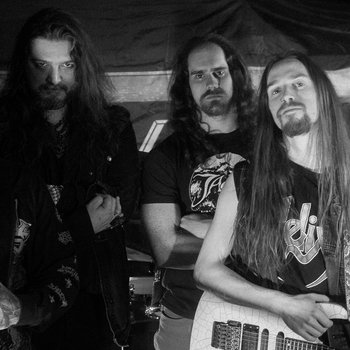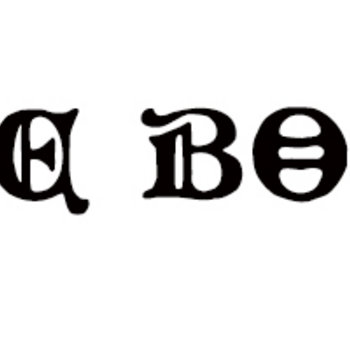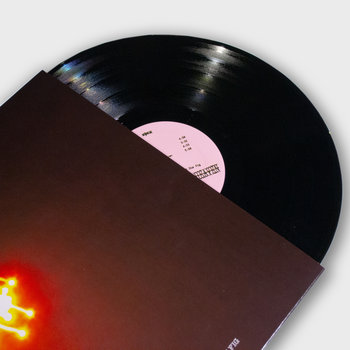
This month’s Best Metal on Bandcamp includes boundary-pushing black metal, atmospheric death metal, a post-metal resurrection, and much more.
Chapel of Disease
Echoes of Light


For as long as there’s been death metal, there have been death metal bands who have sought to push past its borders. A case study: Chapel of Disease are a German band who named themselves for a pair of early Morbid Angel classics. In their early days, to paraphrase frontman Laurent Teubl, they never would have written a song that couldn’t fit on Altars of Madness. Today, they’re perhaps best understood as a classic rock band with death metal embellishments. Echoes of Light is Chapel of Disease’s fourth (and best) album, and they’ve never sounded more comfortable incorporating their ’70s rock influences into their sound. That begins with Teubl, a guitar hero in the archetypal mode. His lead work recalls the bend-heavy emotionality of David Gilmour, the lively phrasing of Roky Erickson, and the moody lyricism of Robin Trower. (Laurent’s brother Cedric, who is no longer in the band, contributes the chunky riffage that helps keep Echoes of Light anchored.) There’s also more clean singing here than there’s ever been on a Chapel of Disease record, which feels like another domino fallen in the band’s journey beyond death metal. However you choose to classify it, Echoes of Light is a great record, full of memorably quirky moments and some of the finest lead guitar playing in recent extreme metal history.
Genital Shame
Chronic Illness Wish





Vinyl LP, Cassette



The music that Erin Dawson makes as Genital Shame is deconstructionist, both in the sense that it interrogates the elements of black metal to illuminate the genre’s essence and because it often feels like a scaffolded building on the brink of crashing down. Chronic Illness Wish, Genital Shame’s first full-length after a pair of remarkable EPs, has a raw power that’s almost startling in its boldness. The songs are built on a foundation of blistering black metal, but they regularly slip down corridors that confront and destabilize it. It’s Dawson’s swagger—perhaps an odd word to describe experimental black metal, but an apt one—that keeps the tower from collapsing. Take “I Met Kerri Colby,” an eight-minute paean to the Rupaul’s Drag Race star that cuts its dissonant black metal blitz with mangled acoustic guitar, creaking samples, and enigmatic spoken word. Dawson adds and subtracts sounds at will, keeping one foot planted in black metal while mocking its arbitrary boundaries. It’s exhilarating to behold. Dawson is a trans woman, and some of her knack for disintegrating and rebuilding black metal feels attributable to that fact. It’s difficult to imagine a bunch of dudes in bullet belts coming up with the noisy synth workout “Hermaphroditic Image,” or writing a song about a drag queen. Yet for all its intrepid deviations from genre orthodoxy, Chronic Illness Wish is always recognizable as black metal. Dawson’s work shines because she loves this music, and she’s committed to remaking it in her image.
Vircolac
Veneration


Vircolac’s Veneration is steeped in the entwined history and legends of Ireland. Inspired by long walks among the weathered stone monuments that dot the Irish landscape, the Dublin band constructed a monument of their own, one that uses bone-chilling, moody death metal to reflect on mortality, myth, and martyrdom. The album is set within a kind of frame story. The mournful voice of guest singer Sarah McQuillan is the first sound you hear on Veneration, on the haunting “The Lament (I Am Calling You).” She returns for the album’s final song, keening wildly as the band strikes up the three-part “She Is Calling Me.” Between those bookends, Vircolac work through a battery of death metal songs that are, by turns, elegiac and eviscerating. Veneration often has a funereal tone, but that doesn’t stop Vircolac from delivering the base pleasures of death metal—jagged riffs, pounding drums, frenzied vocals, the odd bit of warped melody. Fans of Grave Miasma and Dead Congregation should appreciate the way the band’s buzzsaw riffage cuts through dense thickets of atmosphere. But in its vivid renderings of local history and mythology—in the sheer Irishness of its approach—Veneration stands alone.
Gonemage
Spell Piercings








Vinyl LP, Compact Disc (CD), Cassette




Spell Piercings, the new album from Garry Brents’s gonzo Gonemage project, smashes together a pair of unlikely bedfellows: black metal and nü metal. That’s radical on paper, but it makes some bizarre sense in execution. Brents leans into the discomfort of nestling Jonathan Davis-style vocals and DJ scratching among tremolo-picked riffs and blasting drum patterns. It almost feels like he’s daring himself to find commonalities where there seemingly are none. As it turns out, there are. Spell Piercings feels at times like an alternate-universe Thorns or Dødheimsgard, if those bands had gotten into Y2K alt-rock radio instead of industrial music. Brents’s guitar playing and screamed vocals take on the nü textures well. A few riffs, like the opening of “Sliced in the Chamber,” feel like aural Magic Eyes, scanning as black metal at one angle and nü at another. In the not-too-distant past, you could come home from Hot Topic with a Cradle of Filth shirt and a Slipknot shirt in your bag. Spell Piercings is a loving homage to that time.
Traveler
Prequel to Madness







Vinyl LP, Compact Disc (CD), T-Shirt/Shirt




There’s a whole lot of new traditional heavy metal coming out these days. One easy way to separate the wheat from the chaff is to listen to the vocals. Anybody can play a Judas Priest riff, but only the greats can sing like Rob Halford. Across three killer albums, Traveler’s Jean-Pierre Abboud has proved himself to be one of those greats. Prequel to Madness delivers 38 minutes of the Canadian band’s signature blend of speed metal hell, Priest-and-Maiden majesty, and workmanlike, beer-chugging hard rock. Abboud glides over the proceedings like a screeching eagle, his clarion pipes cutting through the din of chugging riffs, lead guitar harmonies, and rough-and-tumble drumming. Everybody in Traveler has to be great at what they do for Prequel to Madness to work as well as it does, but Abboud elevates it to a level it couldn’t hit without him.
The Body & Dis Fig
Orchards of a Futile Heaven








Vinyl LP, Compact Disc (CD)




Long-running experimentalists The Body have found kindred spirits in metal, grindcore, industrial, and even folk music over the years, but their best work has often come when they’ve teamed with artists from the electronic world. 2014’s I Shall Die Here, produced by The Haxan Cloak, is still my favorite album of theirs, so their collaboration with the Berlin-based producer Dis Fig immediately had my attention. Orchards of a Futile Heaven is interested in the idea of heaviness, and how it can be approached from outside the strictures of metal. That’s something Dis Fig’s Felicia Chen has also explored in much of her music, from her collaboration with The Bug to her harrowing (if frequently gorgeous) solo album, PURGE. Orchards granted Chen the rare opportunity to interact with electric guitar, live drums, and another vocalist—Chip King, whose tea-kettle screams are in career-best form. She makes the most of it. Chen produced the album alongside auxiliary Body member Seth Manchester, and together, they unveil new corners and contours of a sound that’s already been just about everywhere. That’s most obvious in minimalist moments, like the slow build of “Holy Lance,” which augments its pulsing synth line with Chen’s voice, sampled strings, and what sounds like a bird call. (Chen’s clean singing is a texture the Body’s music has demanded for years.) The loudest, noisiest parts of the record will likely be the big draw for Body fans—and those parts are impressively gnarly. But even when it gets quiet, Orchards is heavy as hell.
Oldspeak
Oldspeak


Mouth of the Architect were a flagship band in the mid-’00s movement that one critic dubbed the “Cult of Neur-Isis.” On albums like The Ties That Blind and Quietly, the Dayton band played a prog-dusted brand of post-metal that distinguished itself from a crowded field in part with its panoply of synths, samples, and theremin. The man behind those daring keyboard parts, Jason Watkins, has now resurfaced as the mastermind of Oldspeak. The band’s self-titled debut LP marks his welcome return to heavy music, nearly a decade after the last time we heard from MOTA. Oldspeak shares a lot of superficial similarities with Watkins’s previous band; the tempos are mostly slow, the textures are sludgy, and the vibe is overwhelmingly depressing. Thrillingly, it feels considerably heavier than the trajectory MOTA were on toward the end of their run. In fact, these might be the heaviest songs Watkins has ever been a part of, a feat aided by the dense layers of industrial noise and flayed samples he finds room for amid the churning guitars and drums. Sometimes, the noise parts swallow the songs entirely. Bleak epics like “Sun Destroyer” and “Ladder of Self Destruction” will surely appeal to anybody who’s missed MOTA, but the experiments of “Drawing a Circle” and “Temple” are every bit as exciting.
Sleepytime Gorilla Museum
Of the Last Human Being








2 x Vinyl LP, T-Shirt/Shirt, Compact Disc (CD)




One of the great, weird bands of the 2000s is back. Sleepytime Gorilla Museum made a trio of resolutely uncategorizable albums between 2001 and 2007, and they’ve mostly stayed quiet since. Of the Last Human Being is a comeback record, then, but one without the retreading of conquered territory that such a return typically entails. SGM are simply too strange to repeat themselves. Their antecedents are more spiritual than stylistic; fans of Frank Zappa and Mr. Bungle should recognize the puckish commitment to what-the-fuckery on display here. Chaos isn’t all that’s going on, though. SGM have both a keen ear for melody and a shambolic, traveling-circus quality, and those elements cut against one another in unpredictable ways. Across the hour and change that comprises Of the Last Human Being, SGM are as likely to let a lone, weeping violin take center stage as they are to pile what sounds like a hundred musicians into a room to sing a syncopated line. The album is only fleetingly heavy—which has always been true of SGM—but when it is, things get truly demented. SGM are not a normal prog metal band, but if they wanted to be, they’d be a damn good one. Mostly, it’s a relief to learn that Sleepytime Gorilla Museum have, unequivocally, still got it. Step right up and be amazed.







